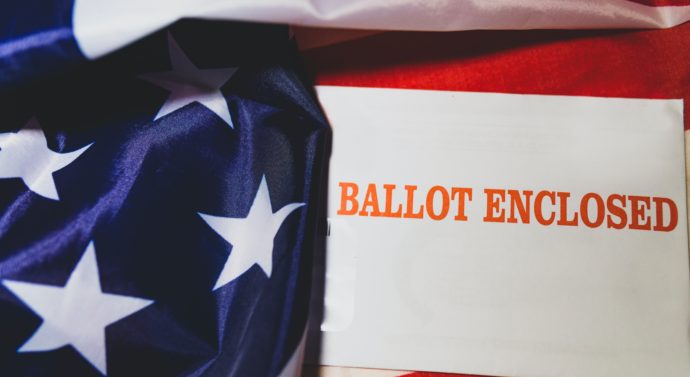
The Election: From a female veteran’s perspective
Editorial November 23, 2020, Comments Off 54The election wasn’t rigged. There’ve been no fraudulent votes, no voter fraud even. But there are a lot of gaps in the transition between two presidential administrations. Here’s the deal. I am a military veteran and what I’m seeing isn’t good. I’m not the most conventional veteran, so I’ll grant that my opinion may not match my once-companions. But I think my old colleagues are starting to come around to my way of thinking.
Military members are more likely than most other minority groups to vote Republican. They lean right for a myriad of reasons: they are primarily white men, most come from low-income backgrounds, they are intensely patriotic and Republicans are more likely to raise military budgets. According to Military Times most recent poll, military members are starting to sway a little from right to center.
I was in the Air Force during the 2016 presidential election wherein opinions were given openly and loudly. Most of the members of my unit were proud to announce they would vote Republican. Though these members had a unique perspective on the vote, most of what they wanted was to ensure their own job security and paycheck. Beyond that, the men around me really didn’t care. And neither did many of the women.
I didn’t vote for the man leading our country right now. And I voted for the person I thought could get him as far away from policy-making tools as possible this year. The last four years have been terrifying for women, people of color, the LGBTQIA+ community and anyone who fits into a minority group. Just look at Twitter or Randy Rainbow’s YouTube account.
The thing I worry most about is how the transition between administrations is not really happening. I worried about how secure Hillary Clinton’s communications were in 2016, but their classification and the FBI’s investigation put me a little at ease. But this is a different matter entirely. A new president has been elected and he is not allowed to start doing his job. That is frightening.
In 1963, Congress passed the Presidential Transition Act which stated: “Any disruption occasioned by the transfer of the executive power could produce results detrimental to the safety and well-being of the United States and its people.” In 2001, we saw just how a refusal to ensure a smooth transition could be harmful to the country.
The current General Services Administrator (GSA) Emily Murphy has refused to give access to funds and office materials to the incoming administration. According to the Los Angeles Times, “Murphy has yet to certify Biden as the winner, stalling the launch of the official transition process.” The issue here is that, regardless of her certification, Biden still won the election with the necessary electoral college votes.
Not only does this increase instability within the country, but it shows our allies and those who might wish the country ill that we can’t even handle our own election system. In 2001, Bush didn’t receive presidential briefs when he needed them which therefore caused a gap in intelligence prior to the 9/11 attacks. Experts have speculated that this gap in intelligence foreshadowed the violence of that September.
While our situation today is very different, the lesson from 2001 is still prevalent. The breakdown in communication between administrations is putting the United States and its people in serious danger. Especially since we are still trying to stay afloat in the midst of a global pandemic.
The only way to keep our country from severe detriment and damage is to facilitate a smooth transition of power—just as the presidents before now have attempted. This was no ordinary president, no ordinary administration and certainly no ordinary circumstances. But somethings are tradition—even law—for a reason. That reason is for the good of the country.
Article by Cheyenne Heavener